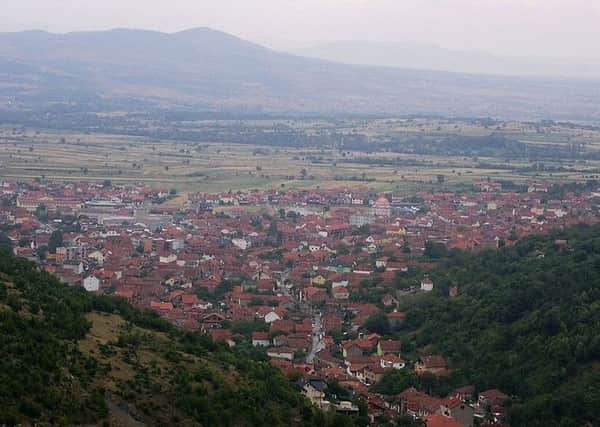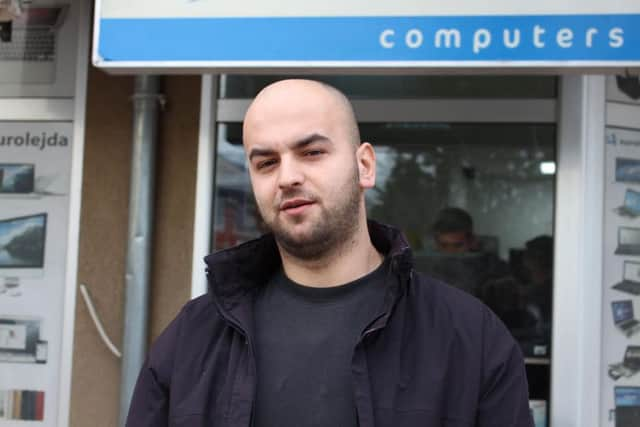Sleepy Serbian town has become international refugee hub


But when the crisis deepened, refugees from Syria, Iraq and Afghanistan, who had risked their lives to escape civil war to travel to Europe, began to flood in to Presevo. The town has now become an international hub for helping refugees.
At first, remembers convenience store owner Jusufi Nazim, it was uncontrolled. Refugees walked down Presevo’s main street, carrying young children, many of them barefoot.
Advertisement
Hide AdAdvertisement
Hide AdNazim handed out water from his store and gave away his three year old’s old clothes to families in need. For him, it brought up memories of 1999 when he, himself, arrived in Presevo as a refugee from his home country of Macedonia during the 1999 civil war - one of many ethnic Albanians to settle in the town.


“I wanted to give them a lift in my car, but the police would not let me,” he said. “I understand what it feels like. It brings back memories. Very much.”
Now, a year on, Presevo is the home to a One Stop processing centre on the site of an abandoned tobacco factory run by the Serbian authorities, where refugees are registered and those who are eligible given the chance to travel through Serbia and on to countries in western Europe.
International aid organisations such as Edinburgh-based Mercy Corps and World Vision have set up offices in the town.
Computer repair worker Halil Aliu, 26, volunteered at the station to help refugees to locate a free shuttle bus which would take them to Presovo.


“It has changed - a lot more organisations, a lot more people,” he said. “And seeing the refugees here in front of us has meant people pay attention to the crisis. It has made people here more community spirited.
“The refugees are good, good people. Some of the stories I heard of what had happened to them were shocking.
The local economy has benefited from the arrival of the refugees, generating jobs - albeit temporary ones - for Serbians. The bank is busier due to high volumes of Western Union transfers from relatives of the refugees passing through. While many of the aid organisations are staffed by people with experience, there are other, non skilled jobs such as cleaners for the One Stop centre.
Advertisement
Hide AdAdvertisement
Hide AdJust a few miles away, in Tabanovce, hundreds of refugees arrive most days by train at the Macedonian border and walk around five kilometres to Miratovac, a temporary camp manned by aid workers. Boots, hats and gloves are handed out by NGOs to refugees arriving ill equipped for cold European winters before they walk another 2.5km to catch a bus to the One Stop Centre in Presevo.
“Presevo has become the one entry point in Serbia for all of the refugees,” said Marko Milijevic, of aid organisation World Vision. “This means Presevo is suddenly very important on the map. But Presevo is a town where everyone knows everyone. It is a big change.”
Milijevic is worried about the future for people living in Presevo who have benefited from the improved economic situation.
“We all know this is only temporary, that one day this will go away,” he said. “We want to be there to support people when that happens.”
No-one in the town appears to have anything other than sympathy for the refugees’ plight.
English teacher Nora Alija, 24, who is chatting with her cousin in the family’s travel agency, is only regretful that Presevo, an economically depressed small town of 13,000 people, is unable to do more to help the refugees. Realising there is little chance of a future in Serbia, which is struggling to apply for membership of the European Union and has national unemployment of around 17 per cent, refugees are unlikely to try to stay in the country, preferring to push on to Germany or Austria.
“I am just sad that we cannot do more,” she says. “But there are not jobs for even the locals in Presevo.”